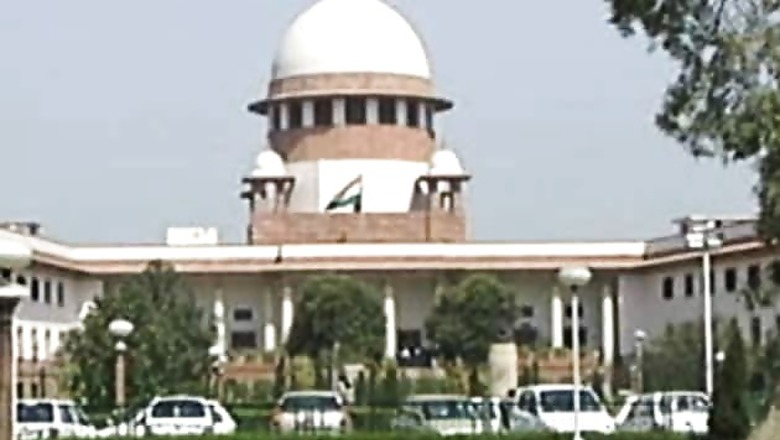
views
New Delhi: The Editors Guild of India on Thursday opposed in the Supreme Court the idea of putting temporary restraint on reporting of court proceedings saying enforcing guidelines in this regard would lead to "infringement" of right to free speech.
The Guild said there was no power under the common law for the courts to "postpone" the publication of judicial proceedings and if there was any "vacuum" in law, restrictions cannot be put on the rights of a person.
"There is no power of postponement (of reporting of court proceedings) in the common law," the Guild's counsel and senior advocate Rajiv Dhavan told a five-judge Constitution Bench headed by Chief Justice SH Kapadia.
The court was hearing a matter relating to framing of guidelines for reporting of court proceedings by the media.
Dhavan clarified that "the position in the common law is that there cannot be a postponement (by court)."
"If you go any further you are going too far. You are actually infringing on free speech," he told the bench, also comprising justices DK Jain, SS Nijjar, Ranjana Prakash Desai and JS Khehar.
The bench wanted to know from the Guild as to how it would be unconstitutional if there would be a postponement of publication for a particular period or time to protect the fundamental rights of an accused vis-a-vis Article 21 (Right to Life and Liberty) and Article 19 (Freedom of Speech and Expression).
"We want to know if rights under Article 21 of an accused is likely to be infringed, should be wait for the proceedings under contempt etc or we can come out with a remedy to solve the infringement of rights at the first stage," the bench asked Dhavan.
The bench said it was debating on the concept of postponement as there was no statute to regulate reporting of court proceedings and if the right of postponement is taken care of by statute there would be no need for any guidelines.
However, Dhavan said "no restriction can be put on the right (of publication), if there is vacuum in law." "If there is no law, your lordship has no power," he said adding that it was getting into "pre-censorship".
The Guild, which supported the view of self-regulation, said "enactment of law with punitive elements would be worse" and "through guidelines there would be precensorship." It said framing of guidelines for reporting sub-judice matter would raise several other questions as to who would enforce them and how they would enforce them.
The courts, he said, would be "flooded" with cases with complaints of violation of guidelines. However, the bench said a citizen has a right to ask for fair trial and the court has to consider such a plea to protect his rights guaranteed under Article 21 of the Constitution.
Dhavan said framing of guidelines was not an answer as the remedy was available under constitution itself. "Remedy is available in writ courts within the framework of the Constitution and remedy is provided under Article 32 and Article 226," he said referring to the handling of the concerns raised by the accused in Parliament attack case and Mumbai blasts case of 1993.
Further, the Guild said it was not in favour of substituting "self-regulation" with "statutory regulation". Dhavan said the entire issue has to be seen in a broad framework as media has expanded and it is not only confined to print and electronic media but there are social media.
The bench also expressed its concern that in many cases reporting of the court proceedings are one sided and this was because of intense competition which also includes business aspect.
The bench said the issue before it was not taken in an adversarial manner nor has it taken suo motu but on the plea of Sahara Group after the leakage of court documents to media.




















Comments
0 comment